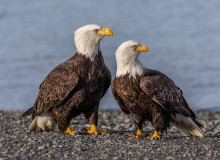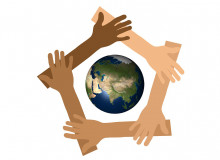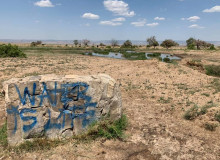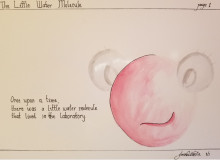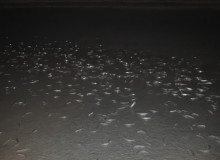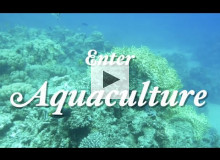Water
.jpg%3Fitok=0feISmxB)
(Terry Goss/Wikimedia Commons https://commons.wikimedia.org/wiki/File:White_shark.jpg)
George Washington University
Marine scientists are using information collected by everyday people to monitor sharks in the face of climate change.
George Washington University
Scientists recently identified an infectious cyanobacterium as the origin of vacuolar myelinopathy, a lethal neurological disease in wildlife.
Tuskegee University
These four places and events illustrate how environmental racism has become the rule — not the exception — for minorities everywhere.
Arizona State University
Water is a precious commodity that’s scarce in many places across the U.S. but even more so in rural Native American communities like the Navajo Nation, where a virus that requires hand-washing has taken a heavy toll.

When people walk down the street, rarely do they ponder the subsurface infrastructure beneath their feet — including hidden waterways. (Yeshi Kangrang/Unsplash)
Franklin & Marshall College
When people walk down the street, rarely do they ponder the subsurface infrastructure beneath their feet. In recent years, there has been a trend to uncover these rivers — a process known as daylighting.
SUNY Environmental Science and Forestry
This short film presentation provides a narration bringing back to light some of the greatest environmental disasters caused by humankind.
George Washington University
"The Little Water Molecule" is a children's story that lightly teaches scientific concepts and water conservation through the eyes of a friendly molecule of water, who is in search of her missing proton.
Planet Forward Correspondent | University of San Diego
Correspondent Maggie Scholle observes a grunion run, a seasonal phenomenon of fish spawning that lines the Southern California coast.
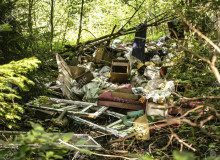
(Photo by Viktoriia Ponomarenko)
Planet Forward Senior Correspondent
The invention of plastic has transformed human life. Plastics are incredibly convenient, and far more affordable than alternative materials. However, the downsides are overwhelming.
The George Washington University
Environmentalists and scientists have always asked, how can we save our oceans? One solution, aquaculture, instead asks us to look at ways in which the world's oceans can save themselves.

